Introduction Businesses rely on robust database systems to manage critical information in today's data-driven world. SQL Server, a stalwart in the database landscape, has evolved over the years, and SQL Server 2022 brings a host of compelling features that make...
Welcome to our blog, which is more than just a record of our experiences. It’s a resource.
Our blog is an invaluable resource for anyone struggling with the challenges of managing a database, applications, or clouds.
We understand the difficulties involved in troubleshooting, building, improving, securing, and operating these platforms,
and we’re here to share our insights and expertise with you. Browse through our collection of blog posts below,
and don’t hesitate to leave your comments and feedback.
Understanding and Preventing SQL Server Deadlocks
SQL server deadlock is a common issue that database administrators often encounter, causing significant disruptions in database operations. This article aims to demystify the concept of SQL server deadlocks, particularly focusing on the nuances between traditional...
Resolving OPW-00029 Error: Bypassing Password Complexity in Oracle
ORAPWD OPW-00029: Password complexity failed for SYS user Encountering the OPW-00029 error due to password complexity for the SYS user in Oracle 12c and above can be problematic. This guide details how to bypass the stringent password requirements by using the...
Data Guard Database Migration and Upgrade to 19c Using Oracle AutoUpgrade
After completing several database migration and upgrade projects, utilizing Data Guard to migrate the database has been my preferred method when minimal downtime is required, and Golden Gate is not an option. From 11.2.0.1 onwards, it is possible to configure the...
Demystifying Timeseries Data: Storage and Options
The world runs on data, and timeseries data is crucial for understanding change. But what exactly is it, and why store it in a specialized format? Let's explore the world of timeseries databases. What is Timeseries Data? Imagine...
The Vital Role of DBAs in Cloud Alert Management
In the era of cloud computing, where data is the new currency, databases are the backbone of modern businesses. They store, manage, and retrieve critical information for decision-making and operations. However, ensuring cloud databases' seamless functioning requires...
PostgreSQL Vacuum Best Practices for a Clean Database
PostgreSQL needs a little TLC to keep running smoothly like any good database. One important maintenance task is vacuuming, a process that removes clutter and reclaims storage space. In this post, we'll delve into the why, what, and how of vacuuming in PostgreSQL,...
Azure Monitor: Best Practices for Monitoring Azure Managed Databases
Azure Monitor provides comprehensive tools for monitoring the health and performance of your Azure-managed databases, including Azure Managed SQL, Azure Database for PostgreSQL, Azure Database for MySQL, and Azure Database for MariaDB. By following best practices, you...
Azure Monitor Best Practices: Essential Metrics for SQL Managed Instances
Ensuring the performance and availability of your Azure Managed SQL databases is crucial for maintaining a smooth user experience and maximizing business productivity. Azure Monitor offers a robust suite of monitoring tools, but navigating the vast array of metrics...
Commvault Error: Backup process could not find log [~/mysql/data/log-bin.xxxx~] in the given transaction log location
Commvault, a comprehensive data protection and management solution, integrates with MySQL databases for backup operations. It leverages MySQL's binlog positions to ensure consistent and efficient backups of MySQL databases. By tracking the binlog positions, Commvault...

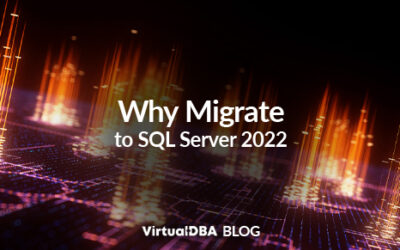
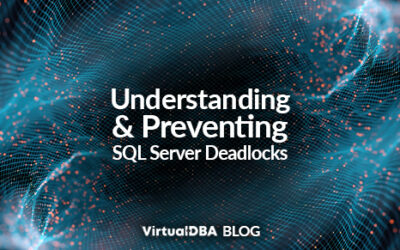
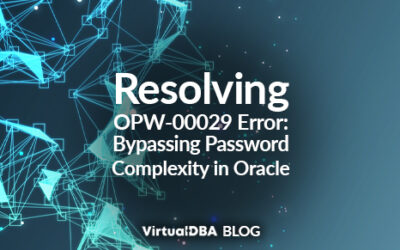
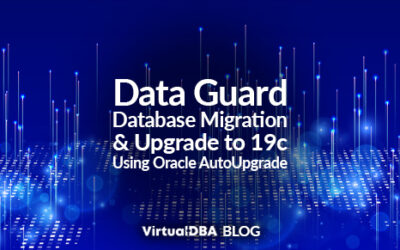

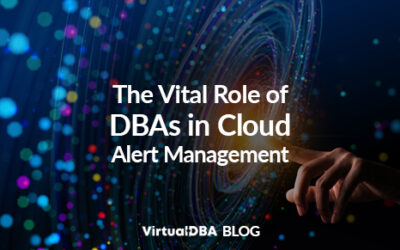
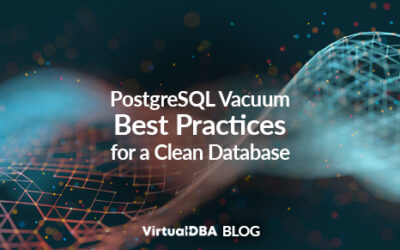
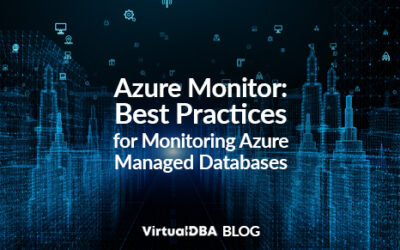
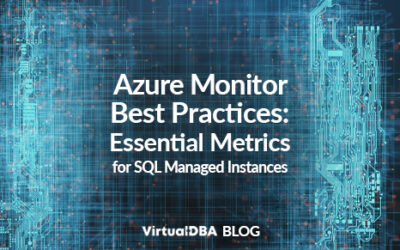
![Commvault Error: Backup process could not find log [~/mysql/data/log-bin.xxxx~] in the given transaction log location](https://virtual-dba.com/wp-content/uploads/Commvault-Error-Backup-process-could-not-find-log-400x250.jpg)